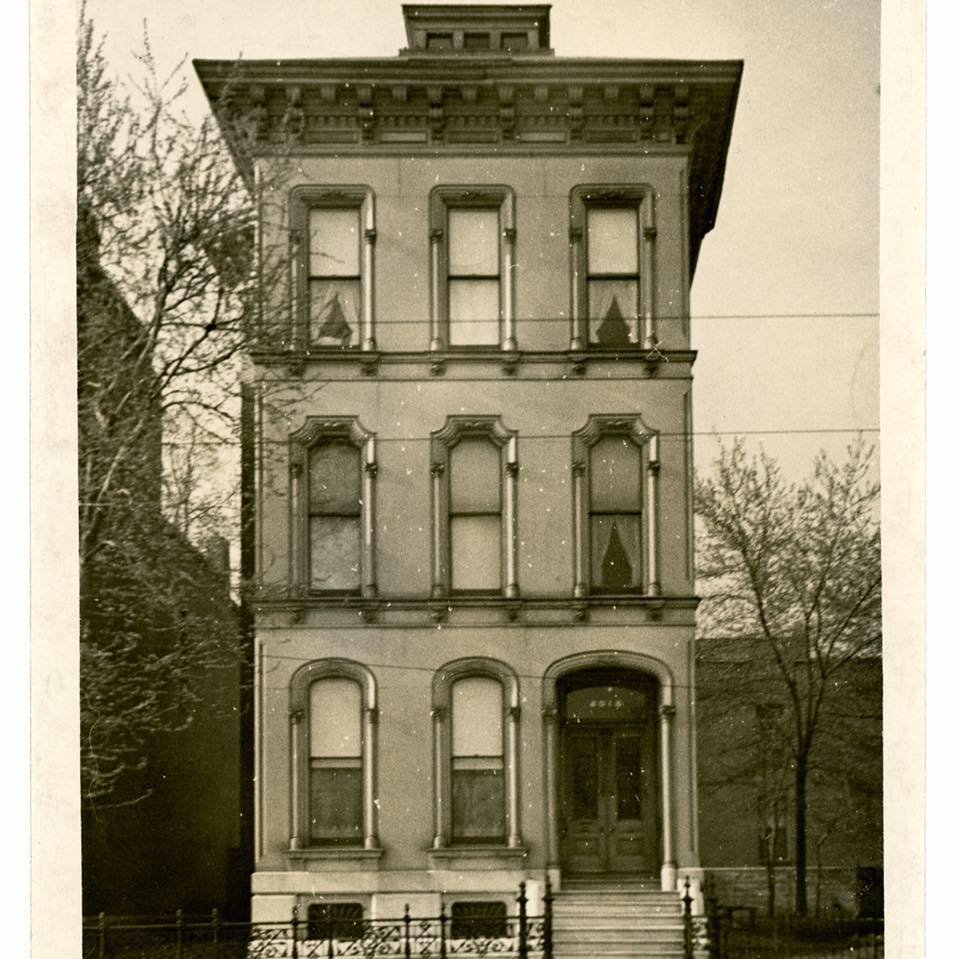Napoleon B. Mulliken house
Built: 1871
Demolished: 1928
Style: Second Empire
Architect: George I. Barnett
Neighborhood: Grand Center
City Block: 2289
On 1875 Compton and Dry Map: yes
On 1883 Hopkins Atlas: yes
Historical significance: This house was built in 1871 for Napoleon Mulliken, a steamboat captain, and the vice president of the Wiggins Ferry Company and secretary of the Keokuk Packet Company. He was a neighborhood trustee and founding resident of Vandeventer Place, which had been planned on the estate of Peter L. Vandeventer in 1870 and designed by Julius Pitzman, famed private street designer and surveyor. Mulliken would only live here until 1876 when he passed away, and his home was then sold to James B. M. Kehlor, who owned the Laclede Flouring Mill, located at 9th and Lafayette Ave (formerly Decatur and Soulard) in the Soulard neighborhood. Vandeventer Place was the most exclusive private street in St. Louis during the late 19th century, and some of the finest mansions in the city were built on the street. However, by the 1920s, the area had become a crowded bustling area with theaters and streetcar lines, and industry, and Vandeventer Place had lost its desirability. The Mulliken mansion, along with several others were demolished in the 1930s, as they became expensive to maintain, especially during the Great Depression.
Architectural significance: This mansion was designed by George I. Barnett, perhaps the most famous architect in St. Louis during the mid 19th century. He built this mansion at a cost of $40,000 in 1871, fronting the entrance of Vandeventer Place, as one of the two Second Empire mansions he designed that greeted visitors to the place, which was still in its infancy in 1871.
The Napoleon B. Mulliken house on the 1875 Compton and Dry Map, labeled number 30.



